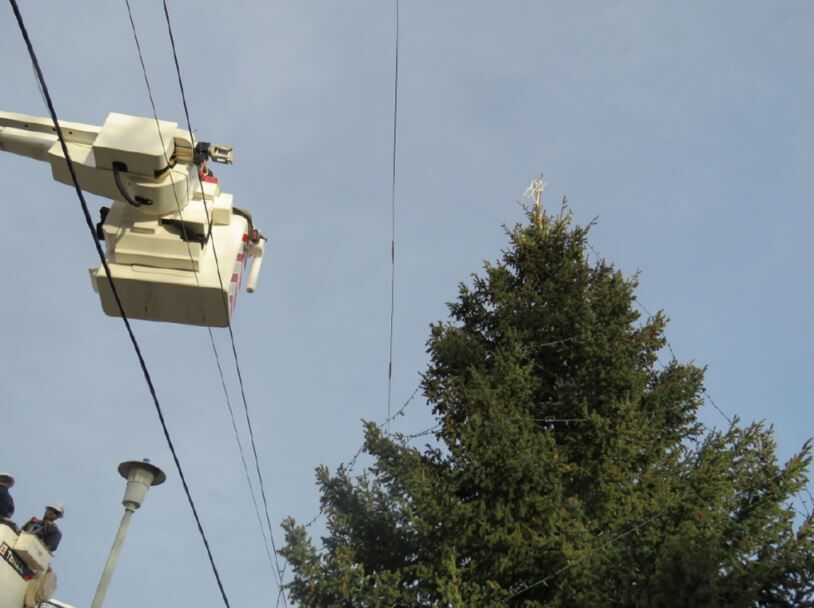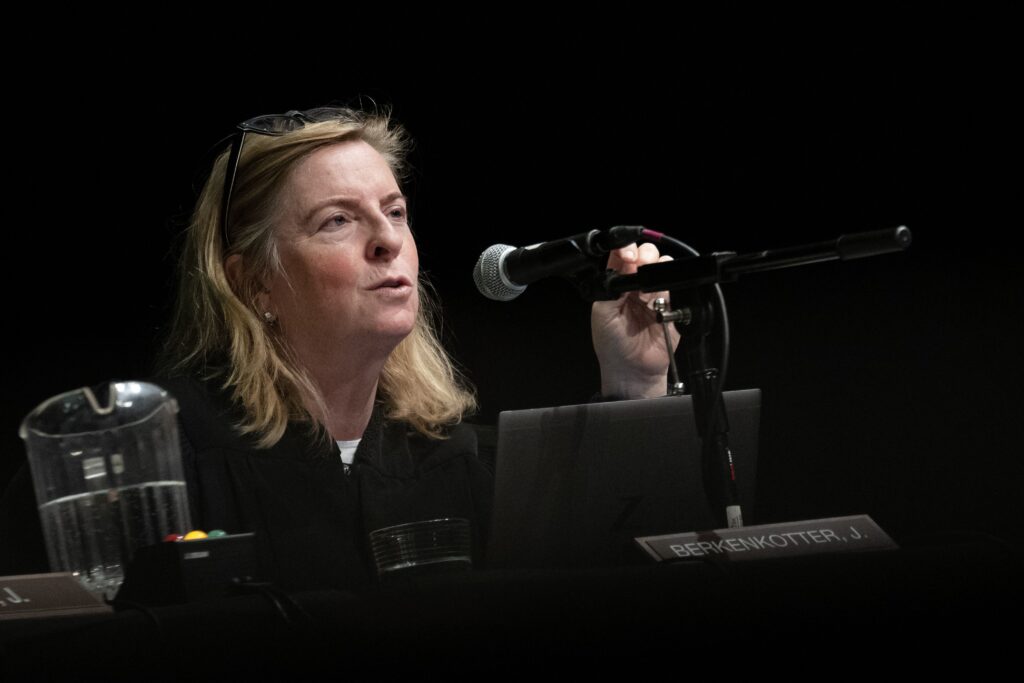Xcel Energy not immune from man’s electrocution lawsuit, appeals court rules

Colorado’s second-highest court ruled last week that Xcel Energy is not immune from lawsuit after its power lines delivered a debilitating shock to a landscaping worker who was attempting to hang Christmas lights on a nearby tree.
Xcel sought to avoid liability under two different mechanisms. First, the state’s High Voltage Safety Act requires parties working near power lines to notify the utility, which Francisco Cuevas did not do. Second, Xcel’s terms and conditions immunize it for any “injury to persons” caused by its equipment.
However, a three-judge panel for the Court of Appeals rebuffed both arguments. Cuevas’ company, and not Cuevas himself, was the contractor, the panel reasoned. Therefore, he had no obligation to give notice of the lighting work and was not barred under the High Voltage Safety Act from suing Xcel.
Further, while Xcel argued “injury to persons” under its terms meant anyone who is injured, not just Xcel customers, “we reject Xcel’s efforts to create such authority,” wrote Judge Timothy J. Schutz in the July 13 opinion.
The appellate court’s decision provided clearer boundaries for when Colorado’s largest utility may be held liable for serious injuries, narrowing Xcel’s immunity against the claims of non-customers.
Case: Cuevas v. Public Service Company of Colorado
Decided: July 13, 2023
Jurisdiction: Denver
Ruling: 3-0
Judges: Timothy J. Schutz (author)
Elizabeth L. Harris
Lino S. Lipinsky de Orlov
In late 2017, Cuevas was hanging Christmas lights at a Lakewood woman’s home. Xcel notified the homeowner in October that her trees would be pruned as part of its “regularly scheduled vegetation management maintenance program,” but the utility did not tell her when that would occur.
On Nov. 15, Cuevas used a ladder and extension pole to put up the lights. Although he maintained he was at least 10 feet from the power lines at all times, the lines allegedly electrified the tree and shocked Cuevas, causing him to fall and paralyzing him. The tree itself was only two feet from Xcel’s lines.
Cuevas sued the homeowner and Xcel for his injuries, arguing they should have known the proximity of the tree to the power lines amounted to a dangerous condition.

The defendants moved for summary judgment, arguing they should prevail under the law. Denver District Court Judge Stephanie L. Scoville denied the homeowner’s request, finding a jury needed to determine whether she acted unreasonably. As for Xcel, Scoville looked to a section of the utility’s tariff, which sets the rates and terms of service for its customers.
The tariff generally immunizes Xcel for “injury to persons” in close proximity to its power lines. Scoville acknowledged the immunity provision was “buried deep in the tariff” and was “very broad.”
Nonetheless, the “Court must assume that the language choice in the tariff was a deliberate choice,” she wrote, “and was intended to limit the utility’s liability for more than just customers.”
Scoville also analyzed whether the High Voltage Safety Act prevented Cuevas and his company, Outdoor Design Landscaping, LLC, from suing Xcel. Because Outdoor Design was the party doing the light hanging, she reasoned, it had the duty to contact Xcel beforehand. Therefore, it could not hold Xcel liable.
During oral arguments to the appellate panel, Cuevas’ lawyer warned against Scoville’s broad interpretation of Xcel’s immunity in the tariff. “Injury to persons” meant injury to “customers,” argued Sean Connelly, and even if Cuevas was an Xcel customer at home, he was not an Xcel customer while hanging the lights.
“If I go out and get hit by an Xcel truck when I’m walking down the block,” Connelly said, “that doesn’t cover me just because I’m a customer.”
The appellate judges were sympathetic to that argument.
“Let me pose a hypothetical to you and see how far you’re asking us to go here,” Schutz said to Xcel’s attorney. “A child’s walking by a tree. The tree’s within 26 inches of a power line. For whatever reason, that electrifies the tree and shocks and injures or kills the child. Are you suggesting that child has no claim in that circumstance?”
“That seems different to me,” responded Franz Hardy, “than someone who is deliberately standing on a ladder whose goal is to string lights throughout a tree that is located 24 inches away from a power line.”
Could Xcel adopt a tariff, pressed Judge Lino S. Lipinsky de Orlov, whereby Xcel has “has no liability to anybody, period?”
Hardy answered that he was unsure.
Ultimately, the panel declined to interpret Xcel’s immunity as broadly as Scoville had. Granting immunity for injuries to any member of the public, in the “absence of an express authorization by the General Assembly,” was improper, Schutz wrote.
The panel agreed with Scoville that Outdoor Design, as the contractor, had the obligation to notify Xcel before hanging the lights, so the High Voltage Safety Act barred the company’s own claims against the utility. On the other hand, even though Cuevas was the company’s owner, he was not technically the contractor, so the law did not foreclose his separate injury claim.
The case is Cuevas v. Public Service Company of Colorado et al.













